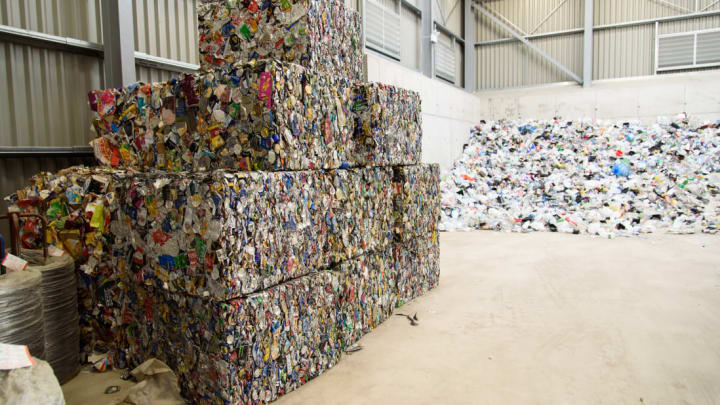We are experiencing the effects of climate change, and the pressure is building for us to do whatever we can in our daily lives to help the environment recover—or, at least, harm it less. So when you’ve forgotten your solar-powered water bottle and are trying to decide between buying a beverage bottled or canned, which should you choose?
When it comes to the resources and processes required for producing plastic bottles and aluminum cans, they’re pretty much tied at “terrible,” according to Lifehacker. Plastic bottles are derived from the non-renewable resource petroleum, also known as oil. You might have seen a commercial where some poor animal is covered in oil from an oil spill—that’s just one of its negative effects. Oil drilling itself can also wreck water and land ecosystems, and fracking uses tons of water and also releases methane, a greenhouse gas that contributes to climate change. Aluminum, on the other hand, is made from a rock called bauxite. Mining bauxite can devastate ecosystems, generate air and water pollution, and cause health issues for the surrounding communities.
When it comes to the recycling prospects of each receptacle, aluminum cans have the edge. Since plastic bottles are so thin, they can’t be recycled into more plastic bottles. Instead, their fibers are used in things like carpeting, clothing, and sleeping bags. Plus, people don’t recycle plastic bottles as often as you might think: Recycling Today reported that the national recycling rate for plastic bottles in 2017 was just 29.3 percent. Meanwhile, aluminum cans can be recycled back into new aluminum cans, and the Aluminum Association, an industry group, estimates that almost 75 percent of all aluminum ever produced is still in use. Aluminum cans are recycled more often than plastic bottles, too—the rate for 2016 was about 50 percent.
Overall, both aluminum and plastic are bad for the environment. But if you want to keep your carbon footprint to a relatively respectable size, go with aluminum.
[h/t Lifehacker]
